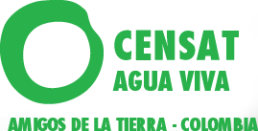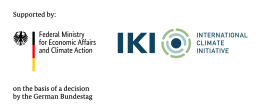Strengthening civil society in the development and implementation of national climate policies (ZIVIKLI, main project)
Environmental organisations play an important role in the development and implementation processes of climate targets at national and local level. In their role as advocates for nature and the future generations, they often call for more ambitious climate protection. Their expert knowledge qualifies them as suitable critical companions in the development and implementation of their country’s climate plans. Particularly their roots in civil society help taking into account social, local and equity aspects of climate mitigation and adaptation.
In many countries, however, climate-minded civil society has only limited opportunities and capacities to successfully engage in the making of climate policies of their national and subnational governments.
In 2017, a predecessor project carried out in cooperation with the Friends of the Earth (BUND), defined those challenges together with organisations of the international Friends of the Earth Network. Moreover, starting points to strengthen the work of civil society in climate policy making were identified.
Since 2018, there has been intensive work on these issues with partner organisations in Georgia, Colombia and Ukraine in the ZIVIKLI project. While BUND, in close cooperation with the partner organisations, evaluates and strengthens the climate policy profiles and activities of the countries, UfU primarily accompanies the project scientifically and analyses the participation opportunities for civil society. A study, which was published in 2020 in the course of the first phase of the project, shows the status quo in the three countries in focus, identifies good practices and gives recommendations on how to improve civil society participation in the development and implementation of local and national climate plans.
In the second project phase, which began in 2022, the cooperative work with the existing partners and stakeholders in Georgia, Ukraine and Colombia is deepened with the goal of further developing, improving and consolidating existing climate policy participation processes. Furthermore, the project now extends to Argentina, Chile, Costa Rica, Kazakhstan and the Republic of Moldova. The new cooperations also aim to strengthen the climate policy work of local civil society actors, improve their networking at local and national level and to disseminate the knowledge gained from the project.
In Ukraine, the focus will be on how civil society actors can participate in decision-making and how they can advocate for climate and environmental protection even in times of war. Also options for a “green reconstruction” of the country will be examined. In Argentina, Chile, Costa Rica, Kazakhstan and the Republic of Moldova, UfU will analyse the opportunities for civil society participation making use of an evaluation scheme developed in the first phase of the project. The results of these country studies will then be discussed with national civil society actors, politics and science in order to improve the framework conditions and the offers for participation. The long-term goal is to ensure that the contributions of civil society actors are taken into account in national climate policies and thus, in the long term, help increasing ambitions in international climate targets.
Duration
06/2018 – 04/2024
Contact:
Franziska Sperfeld
Larissa Donges
Coorporation Partner
Bund – Friends of the Earth Germany
Funded by
Federal Ministry for the Environment and Consumer Protection
in the framework of the International Climate Initiative
Veröffentlichungen/Publications:
Weitere Veröffentlichungen / Further Publications:
2020: Online Participation in Climate Policy – A guide to engaging stakeholders digitally (PDF)
2020: Civic space for participation in climate policies in Colombia, Georgia and Ukraine.
Podcast “[Insert solutions here]. Climate meets Democracy”
In our new podcast we talk about ideas and solutions that, on the one hand, actively address the climate crisis and, on the other hand, promote democratic principles. Guests from science and practice share their knowledge and experiences from around the world with us. The podcast series addresses a broad international audience with interest in climate related subjects and enables both the deepening of knowledge as well as the exploration of new ideas. We discuss the basics of good participation in climate governance and look at the crucial role of human rights as well as protest, trade unions, citizen’s assemblies, advocacy and international agreements.
All episodes: https://www.ufu.de/en/zivikli-podcast/
Further information (in German):
→ Länderberichte zur Beteiligung der Zivilgesellschaft an der Klimapolitik jetzt verfügbar
→ UfU vertreten auf Side-Event der Klimaverhandlungen in Bonn
→ Zivilgesellschaft und Klimapolitik: UfU auf der Global NDC Conference in Berlin
→ Stärkung der Zivilgesellschaft bei der Umsetzung der nationalen Klimapolitik








